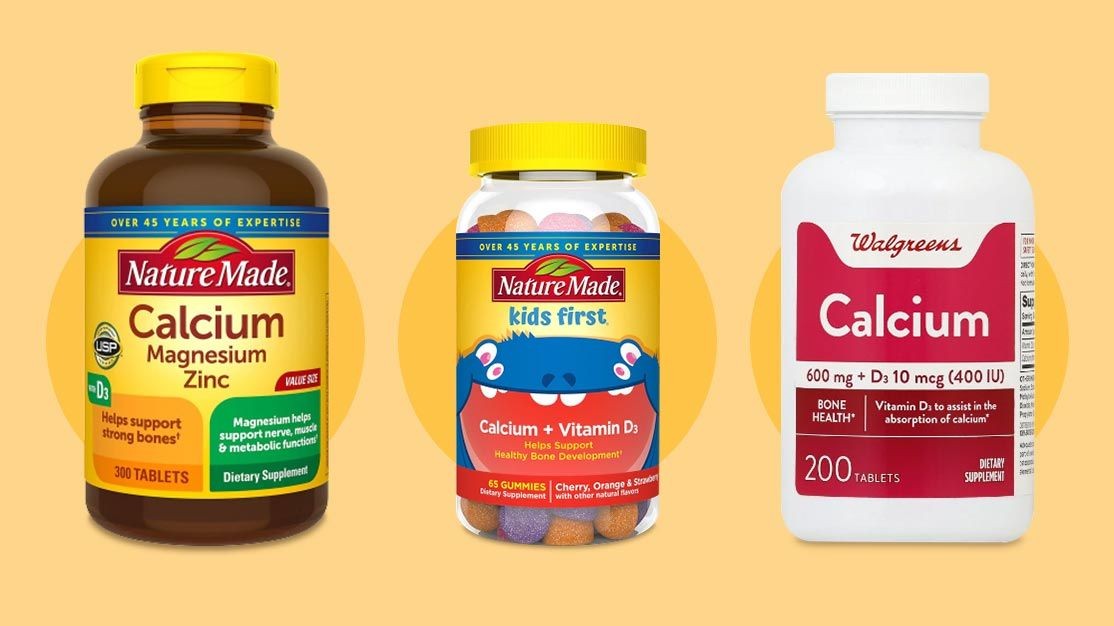
Calcium Supplements – Oral
Medication Uses: This medication is used to prevent or treat low blood calcium levels in people who do not get enough calcium from their diets. It may also be used to treat conditions caused by low calcium levels such as osteoporosis, osteomalacia/rickets, hypoparathyroidism, and latent tetany. Additionally, it may be used in certain patients to ensure adequate calcium intake, such as pregnant, nursing, or postmenopausal women and those taking specific medications like phenytoin, phenobarbital, or prednisone. Calcium is essential for the normal functioning of nerves, cells, muscle, and bone. Having the right amount of calcium is crucial for building and maintaining strong bones.
How to Use: Take this medication with food. If your product contains calcium citrate, it may be taken with or without food. Follow all directions on the product package or as directed by your doctor. For optimal absorption, divide your daily dose and space it throughout the day if it exceeds 600 milligrams. If you are uncertain about the information, consult your doctor or pharmacist. Chew the chewable product well before swallowing. Allow the effervescent tablet to fully dissolve in a glass of water before drinking it. Do not chew or swallow the tablet whole. If you are using the liquid product or powder, measure the medication with a dose-measuring spoon or device. Do not use a household spoon. Shake the bottle well before each dose if the liquid product is a suspension. Take this medication regularly at the same time(s) each day to get the most benefit. Follow any special diet recommendations provided by your doctor to maximize the medication’s effectiveness and prevent serious side effects. Do not take other supplements or vitamins without your doctor’s approval. Seek immediate medical attention if you suspect a serious medical problem.
Side Effects: Possible side effects include constipation and upset stomach. Inform your doctor or pharmacist if these effects persist or worsen. Most people using this medication do not experience any serious side effects. However, seek immediate medical attention if you experience nausea/vomiting, loss of appetite, unusual weight loss, mental/mood changes, bone/muscle pain, headache, increased thirst/urination, weakness, or unusual tiredness. Serious allergic reactions to this drug are rare but require immediate medical attention. Symptoms of a serious allergic reaction may include rash, itching/swelling (especially of the face/tongue/throat), severe dizziness, or trouble breathing. This is not an exhaustive list of possible side effects. If you notice any other effects not listed above, contact your doctor or pharmacist. In the US, call your doctor or FDA at 1-800-FDA-1088 for medical advice about side effects. In Canada, call your doctor or Health Canada at 1-866-234-2345.
Precautions: Inform your doctor or pharmacist of any allergies before taking calcium. This product may contain inactive ingredients that can cause allergic reactions or other problems. Consult your pharmacist for more details. Do not use this product if you have high calcium levels (hypercalcemia). Before using this product, consult your doctor or pharmacist if you have kidney disease, kidney stones, achlorhydria, heart disease, pancreatic disease, sarcoidosis, or malabsorption syndrome. Some sugar-free calcium formulations may contain aspartame. If you have phenylketonuria (PKU) or any condition requiring aspartame restriction, consult your doctor or pharmacist before using this drug. Inform your doctor if you are pregnant or breastfeeding.
Drug Interactions: If you are using this product under your doctor’s guidance, they may already be aware of potential drug interactions and monitoring you for them. Only change the dosage of any medicine after checking with your doctor or pharmacist. Inform your doctor or pharmacist of any products you use, such as digoxin, cellulose sodium phosphate, or certain phosphate binders. Calcium can decrease the absorption of other drugs, so separate your doses of calcium from those of bisphosphonates, tetracycline antibiotics, estramustine, levothyroxine, and quinolone antibiotics as much as possible. Check the labels on all your prescription and nonprescription/herbal products for calcium. Ask your pharmacist for guidance. This document does not include all possible interactions. Keep a list of all your medications and share it with your doctor and pharmacist.
Overdose: If overdose is suspected, contact a poison control center or emergency room immediately. US residents can call their local poison control center at 1-800-222-1222. Canada residents can call a provincial poison control center. Symptoms of overdose may include nausea/vomiting, loss of appetite, mental/mood changes, headache, weakness, and tiredness.
Notes: Foods rich in calcium include dairy products, dark-green leafy vegetables, and calcium-fortified foods. Vitamin D aids calcium absorption and is found in fortified dairy products, eggs, sardines, cod liver oil, chicken livers, fatty fish, and as a result of sun exposure. Attend all regular medical and laboratory appointments recommended by your doctor. If your doctor has prescribed this medication, periodic laboratory and/or medical tests, such as calcium level measurements, should be performed to monitor your progress and check for side effects.
Missed Dose: If you miss a dose, take it as soon as you remember. If it is near the time of the next dose, skip the missed dose and resume your usual dosing schedule. Do not double the dose to catch up.
Storage: Store this product at room temperature away from light and moisture. Refer to the packaging for the exact temperature range. Ask your pharmacist for any storage inquiries. Do not store in the bathroom. Keep all medicines out of reach of children and pets. Do not flush medications down the toilet or pour them into a drain unless instructed to do so. Properly discard this product when it is expired or no longer needed. Consult your pharmacist or local waste disposal company for proper disposal instructions. Information last revised March 2013. Copyright(c) 2013 First Databank, Inc.


